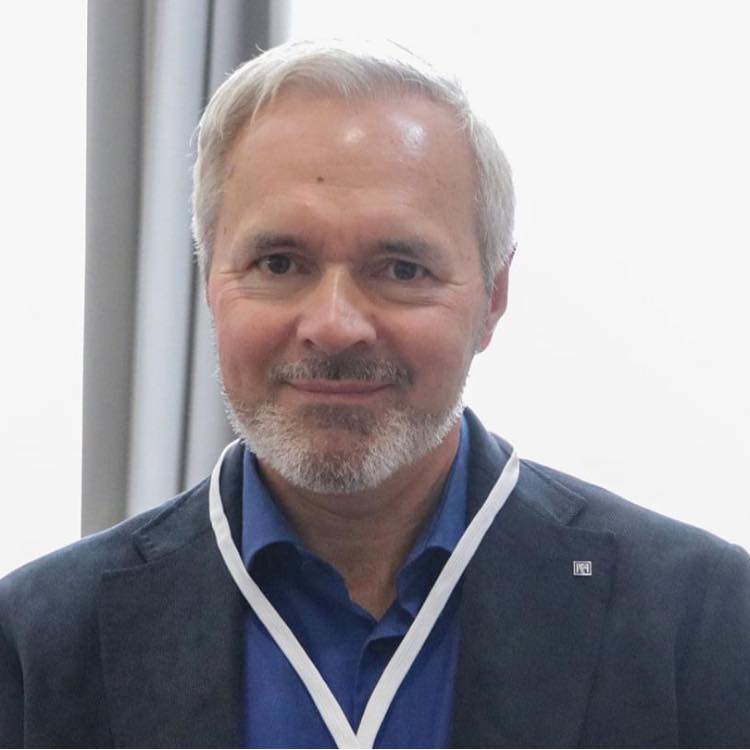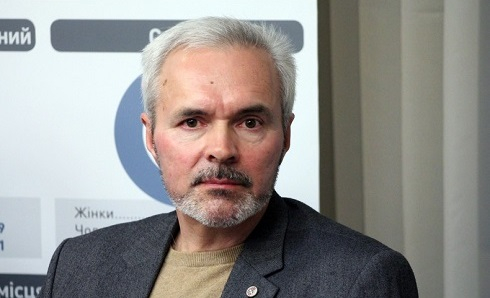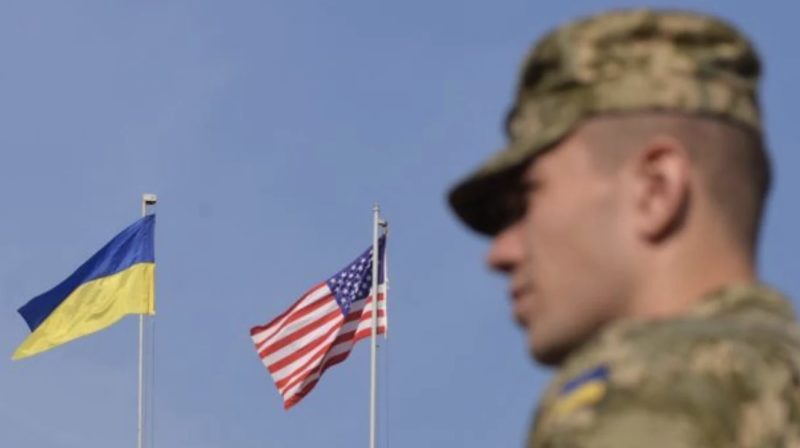
In his interview with Euromaidan Press, Mykola Khavroniuk, a Ukrainian lawyer, former head of the legal department and deputy chief of staff of the Supreme Court of Ukraine, assessed the reforms of anti-corruption institutions of Ukraine.
Mykola Khavroniuk is generally optimistic about the work of Ukraine’s anti-corruption institutions. Khavroniuk noted that establishing independent anti-corruption institutions in Ukraine is a crucial step that helps track down corrupt practices and punish officials involved in corruption. On the other hand, Khavroniuk stressed the importance of solving problems that prevent Ukrainian anti-corruption institutions from doing their job more effectively.
Euromaidan Press: How do you assess the process of establishing independent anti-corruption institutions in Ukraine? What mistakes have been made along the way, if any? How can they be fixed, in your opinion?
Mykola Khavroniuk: In general, I assess this process positively. Without the National Anti-Corruption Bureau (NABU), the Specialized Anti-Corruption Prosecutor's Office (SAPO), and the High Anti-Corruption Court (HACC), we would have been in a bad situation.
The fact that these three bodies have been created has allowed us to start a real fight against criminal corruption, and there is some success in that.
At least we can say that before HACC was created and started considering corruption cases related to officials, such cases had been piling up in other courts without consideration for months and years.
Perhaps they would never have been considered at all. I am very optimistic about the work of the National Agency for Corruption Prevention (NAZK). In particular, the work related to developing strategic documents and verifying income and expense declarations submitted by officials.
However, we have a problem with the Agency for Investigation and Management of Assets (ARMA). The situation is terrible because we cannot elect the head of this agency. The acting heads are not able to organize the work properly. And this is not good.
I negatively assess that our Specialized Anti-Corruption Prosecutor's Office (SAPO) does not have proper autonomy. When no head of the SAPO was appointed, the Prosecutor General was acting as the head of this anti-corruption institution. More precisely, these powers were delegated to Prosecutor General deputies, who often made decisions that society did not perceive well.
I negatively assess the fact that we do not conduct audits of the NABU, the SAPO, and the NAZK.
The audit of the SAPO is not stipulated by law at all. As for the NABU and the SAPO, the audit is provided for by law, but we do not conduct that audit, which is not good. An independent assessment of the activities of the aforementioned institutions is critical to make them work effectively.
Why Ukraine’s wartime anti-corruption quest gives ground for cautious optimism
EP: Why, in your opinion, is the audit of anti-corruption institutions not being conducted as required by law? How can this be fixed?
MK: There is no audit because the authorities probably do not need it.
You may remember a situation when Ukraine’s President Petro Poroshenko (Volodymyr Zelenskyy’s predecessor) appointed an auditor. But he never started the audit. He was disappointed that he was not paid well for the job. He did not agree to work for free for several months and eventually resigned. That was the end of it. If the authorities wanted to organize an audit according to the law, they would have found the funds for it, appointed qualified and experienced experts, and the audit would have been carried out effectively.
An audit takes from three to six months to be finished.
In other words, to start the audit process, you need to hire qualified employees and pay them a salary.
EP: Should auditors be provided with a salary according to the law?
MK: This is not stipulated by the legislation. However, just as money is paid for technical assistance to members of various selection committees, audits could be paid for in the same way.
EP: Does Ukraine need to amend the legislation to make everything work?
MK: Not necessarily. Donors can take care of this.
EP: How do you assess the procedure for selecting the NABU head? Is it transparent enough, in your opinion?
MK: The procedure is generally transparent. The commission included scholars, representatives of Ukrainian civil society, and international organizations.
In my opinion, the tasks that were developed for selecting the NABU head were of high quality and helped to check the professional level of the applicants adequately. The organization of the selection process was at the proper level.
However, there is a problem with the timing. That is, someone is always putting a spoke in the wheel to prevent this process from happening quickly. In my opinion, part of the process takes place behind the scenes and is not transparent enough.
Some things are not always done openly, and the public is then forced to guess why some of the applicants were eliminated, left out, or not allowed to be selected.
The competition's conditions should be written out before the competition starts. Everyone should understand what criteria he or she should meet to pass a particular selection stage.
EP: In other words, the selection process is not sufficiently regulated?
MK: This process is not sufficiently regulated in advance. The procedure should be unified and clear for everyone. Otherwise, we end up with a situation where we select, say, judges of the High Anti-Corruption Court according to one procedure, members of the High Council of Justice of Ukraine by another procedure, members of the High Qualification Commission of Judges by a third procedure, the head of the Specialized Anti-Corruption Prosecutor's Office by a fourth procedure, some other prosecutors by a fifth procedure, the head of the NABU by a sixth procedure, and the head of the State Bureau of Investigation by a seventh procedure. This is not right. There must be a single procedure. There may be certain peculiarities for judges and prosecutors, but generally, there should be a single procedure.
Furthermore, the participation of foreign experts, representatives of civil society, and scholars should be equally proportional. Everything should be clearly regulated, including the tasks for the selection process, what experts should develop such tasks, and in what order. For instance, I was one of the developers of the tasks for the SAPO and NABU competitions. Donors approached me and asked if I could develop those tasks. I agreed and did the job together with some other colleagues. But we were not certified in any way.
Of course, we were selected and agreed to get the job done. Everyone knows that we are highly qualified. But some other people can be chosen later with insufficient qualifications because the requirements are not stipulated. There is absolutely no certainty here.
EP: The shortlist for the NABU head's position included applicants with a trail of reputational problems. How can you comment on the fact that the new NABU head is involved in an anti-corruption investigation by Radio Liberty journalists, namely the Skhemy project?
MK: I cannot comment on this because journalists have the right to investigate anything. The investigation by journalists, as such, cannot influence the work of the competition commission.
EP: Nevertheless, the journalists found that some of the candidates for the NABU head's position made mistakes in declaring their property and income, including the newly appointed NABU head.
MK: The commission should assess this fact, and I cannot tell you anything more about it.
EP: What do you think about the NABU's case against the former CEO of Naftogaz, Andriy Koboliev?
Case against Ukraine’s ex-Naftogaz chief: political persecution or effective anti-corruption work?
MK: First of all, we need to look closely at the specific documents of the Cabinet of Ministers that regulate the calculation of bonuses for officials.
When we hire managers for high positions, we promise these managers that they will be paid well for their work. They drop everything and start working in the best interest of the state and the entire society.
However, when such managers bring benefits to the state, we start discussing whether we paid them too much. This is unacceptable.
If we have promised in advance that we will pay a certain percentage of the income of the company that such managers work at, we have to pay them and fulfill our contract.
I am talking about this generally, not just Andriy Koboliev’s case.
And the situation with Koboliev is that no one knows whether the government authorized him to be paid the number of bonuses he was paid with. Some say that there was such permission. Others say that there was not. We need to look into this.
EP: Do you see any political motivation in this case?
MK: Even if this case has signs of political motivation behind it, it should end with the unbiased establishment of legal facts.
If there is no crime in this case, Koboliev should be acquitted, and the NABU should move on to other cases. This situation is quite similar to the case against the former Prime Minister of Ukraine, Yulia Tymoshenko.
It was a political case, and few people wanted to understand the legal nuances because it was politicized. Did Tymoshenko have the authority to sign a gas supply contract with Russia on behalf of the Cabinet of Ministers of Ukraine? Or did she not have such authority? This was the key legal question. In the end, the judges determined that she did not have such authority, and she was convicted [On 11 October 2011, the court found Tymoshenko guilty of abuse of power, sentenced her to seven years in jail, and ordered her to pay the state $188 million. She was convicted for exceeding her powers as Prime Minister by ordering Naftogaz to sign the gas deal with Russia in 2009. In 2014 Tymoshenko was acquitted].
But at that time, there were no independent anti-corruption institutions in Ukraine as such, and no judicial system dealt with these cases. There was no trust in either the investigation or the court because they were politically dependent on the government. Today the situation is different.
EP: In your opinion, are Ukraine's anti-corruption institutions independent of the government now? Do you see any mechanisms that allow us to say that the anti-corruption institutions in Ukraine are genuinely independent?
MK: I can see that anti-corruption institutions are genuinely independent. When we talk about judicial independence, one of the indicators is the percentage of acquittals. This is just one of the indicators, but it is vital. In the days of Yanukovych [the former President of Ukraine who was indicted for state treason and is currently in Russia, a fugitive from justice], we had a percentage of acquittals in all courts far less than one percent, around 0.250% of all cases. Now the High Anti-Corruption Court shows it can safely acquit people if it sees that the guilt is unproven. The percentage of acquittals is higher in all courts, and in the Anti-Corruption Court, it is even higher. This is one of the indicators that our country has an independent anti-corruption structure. There are other indicators as well.
For example, when the Appeals Chamber of the High Anti-Corruption Court overturns a decision of the Anti-Corruption Court without any fear of political consequences, this is the second indicator. Another indicator of the uninterrupted work of the anti-corruption court is the reversal of interim, non-final court decisions, such as the decision to take a suspect into custody and so on. This is happening at all levels of the judicial system in Ukraine these days. Acquittals are not uncommon. The High Anti-Corruption Court makes many decisions that look really independent to me.
All in all, the process of establishing anti-corruption institutions in Ukraine is going well, but it could be even better.
Related:
- Ukrainian customs management, other officials sacked amid wave of security raids
- SBU raiding residence of oligarch Kolomoiskyi - media
- US establishes Ukraine aid corruption detection institution
- Ukraine's Defense Ministry procurement department director dismissed




